I'm writing a Function that pulls Records from a DataBase using LINQ to get an IQueryable. This LINQ statement will pull all of the records for Active users within a certain time period, and then spit the UserID, First Name, and Last Name out to a Telerik RadGrid.
My problem lies within trying to get a Distinct Value on the UserID when pulling this Data. I have tried re-working this code to get my result. Here is the an example of the code that is pulling all of the Data, with the Distinct NOT working.
public static IQueryable GetActiveEmployees_Grid(string Period)
{
DataContext Data = new DataContext();
var Employees = (from c in DataSystem_Records
where c.Period == Period
orderby c.DataSystem_Employees.LName
select c).Distinct();
return Employees;
}
After applying the DataSource to my Grid, this returns the User 4 times, one instance for each Record for that Period.

Is there a way to apply Distinct to my LINQ Function to make this work the way I intend it to?